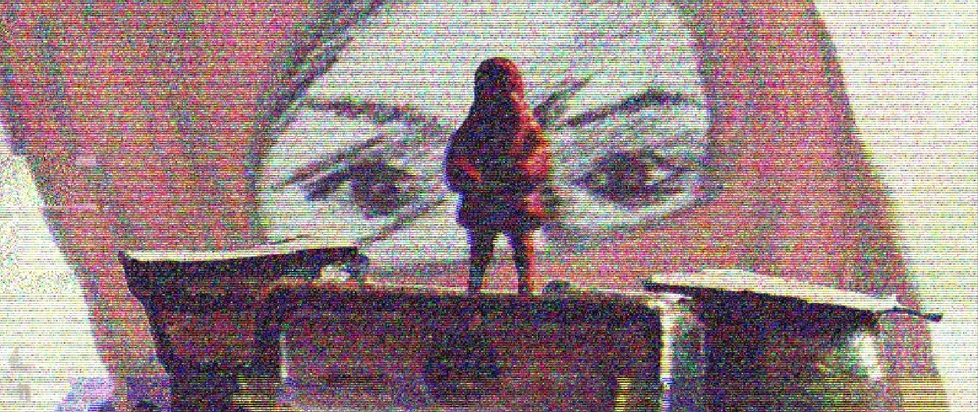Pastiche is an aspect of post-modernism that involves borrowing from pre-existing aesthetics, cultures and time-periods when creating new work. It’s “the imitation of a peculiar or unique style, the wearing of a stylistic mask, speech in a dead language,” as Frederic Jameson writes in his essay, Postmodernism and Consumer Society. A post-modern artwork that uses pastiche presents an ahistorical experience, built from imagery that is isolated from its own history and context.
Jack King-Spooner’s Dujanah is an exercise in pastiche and post-modernism. It follows in the structural footsteps of King-Spooner’s previous game, Beeswing, delivering a series of narrative vignettes, told through the characters that populate King-Spooner’s surrealist worlds. Where Beeswing is firmly rooted in the Scottish villages and footpaths of King-Spooner’s lived experience, Dujanah is set in an amalgam of Middle Eastern imagery and tropes. It follows the story of a Muslim woman, Dujanah, who is on a quest to uncover the whereabouts of her missing husband and child, killed in an introductory scene by a drone strike. The game uses the fictionalized setting to explore themes of occupation, revenge and death.
Dujanah’s quest takes her to a jingoistic (yet oddly accessible) military base, an underground lab where a recluse builds an army of suicidal robots in order to better understand death and a village full of rock venues and spider-people. Though the western military presence casts a shadow over much of Dujanah’s journey, King-Spooner admits the game would likely have looked much the same even if it hadn’t been set in a fictional Middle East: “I can (just about) imagine the game being set anywhere. There are strong hints in the game of real places (Afghanistan, Algeria, New Mexico) but I opted for the artistic liberties of a fictional setting.”
When placed together, these disparate cultures and locations create the effect of being in a non-place. The reverb-heavy guitar riffs that would accompany a new wave Western like Six-String Samurai, transition to more traditionally orientalist motifs as your character leaves the world map and enters a North African-styled village. Characters speak of middle-class amenities and gather for Lamaze-like pregnancy classes, despite living in ostensible pre-modernity. And though Dujanah covers up with the hijab, we hear no call to prayer, see no mosques and rarely hear Islam explicitly mentioned, despite it being the primary religion of the setting.
Though Dujanah may be a non-place, there are endless examples of real places experiencing the real pain of occupation. Palestine is in the midst of violent protests after Trump brazenly declared Jerusalem Israel’s capital. Yemen faces famine and epidemic, thanks to a U.S.-backed Saudi incursion. Events such as these surely inspire the mood and imagery of the game, but because it is set in such a detached and hodgepodge setting, Dujanah is unable to deliver an impactful vision of what it means to be occupied. The military, its drones and the grieving families they produce, are all reduced to symbols and metaphors, there to help the player explore metaphysical themes that could have been represented in any number of other ways.
There’s a responsibility that comes with using the art, language and symbolism of another culture. More steps are involved than plucking it from a gallery, music concert or book, and dropping it into a game – especially when you are approaching a culture that isn’t your own, especially when that culture has so often been exotified and appropriatedin the past. …continue reading on Unwinnable

